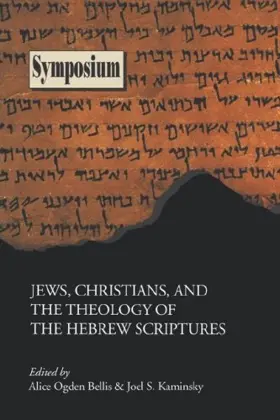

Jews, Christians, and the Theology of the Hebrew Scriptures (Symposium Seris)
Pages
468
Publisher
SBL Press
Published
2000
ISBN-13
9780884140252
Inner Books
This physical volume has several internal sections, each of which has been reviewed independently
- Biblical theology appropriately postmodern by Walter Brueggemann
Reviews
Atlanta, GA: Society of Biblical Literature, 2000. Pp. xiv + 450, Paperback, $49.95, ISBN 0884140253. Michael S. Moore Fuller Theological Seminary Southwest 4636 E. University, Phoenix, AZ 85034 The purpose of this book is to generate more (and more creative) dialogue between Jewish and Christian scholars over the nature, accessibility, and theological meaning of the Hebrew Bible/Old Testament. The editors, a Christian and a Jew, suggest in their introduction that younger scholars are no longer interested in debating the issues of a previous generation, that is, moral questions designed to assess blame for the Holocaust (Shoah) or tired questions about alleged anti-Semitism in the Gospels. The present book seeks to move away from old debates to new theological dialogue, and for this reason alone it should be welcomed. The focus here is on generating a "clearer understanding of each other's religious worldview through respectful but candid conversation" (2), and several scholars contribute to this conversation: Alice Ogden Bellis, Marc Zvi Brettler, Walter Brueggemann, John J. Collins, Ellen F. Davis, Terence Fretheim, Tikva Frymer-Kensky, Esther Fuchs, Baruch Halpern, Joel S. Kaminsky, Jon D. Levenson, Murray H. Lichtenstein, David Marcus, Rolf Rendtorff, Jorge Pixley, Brooks Schramm, S. David Sperling, Marvin A. Sweeney, and Johanna van Wijk Bos. Most of these contributions have their origin in papers generated by the Society of Biblical Literature's "Theology of the Hebrew Scriptures" section. Joel Kaminsky sets an irenic tone with an essay entitled "Paradise Regained: Rabbinic Reflections on Israel at Sinai" (15-43). Although much is written about Christian "triumphalism and supersessionism," he argues, considerably less is said about Jewish "triumphalism," even though this problem has unfortunately led to a situation in which traditionalist Jews perceive the church as a "rebellious child." With J.
[Full Review]
